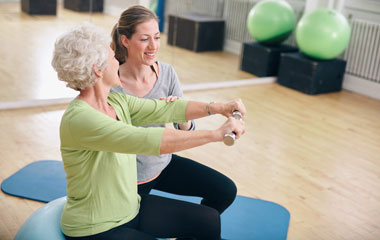
Here are five healthy aging tips for women:
Maintain a healthy diet
A healthy, balanced diet is critical to reduce risk for major health problems such as heart disease, cancer, stroke, bone loss, anemia and diabetes. It is important to choose right foods, because older adults can prone to food borne illness and food poisoning. Include high-fiber fruits, veggies and whole grains in your diet, and small amount of lean protein at each meal to maintain muscle mass and repair cells. Ensure the recommended servings where protein is concerned as excessive protein intake increases risk of cancer and heart disease. Also limit consumption of red meat, as it can increase the risk of cancer and other diseases.
The FDA has recommended four basic food safety – Clean (wash hands and surfaces often), Separate (don’t cross-contaminate), Cook (cook to safe temperatures), and Chill (refrigerate promptly). Don’t buy food displayed in unsafe or unclean conditions and when purchasing canned goods, make sure that they are free of dents, cracks, or bulging lids.
Keep moving, stay active
While strength training exercises such as weightlifting, elastic bands, and hand dumbbells promote toned, strong muscles, aerobic exercises can improve heart and lung health. Women with bones or joints that are not that strong can try exercises that put less stress on the joints such as walking, swimming or water aerobics. A blog in Healthy Women says studies show that people who increase their activity later in life often gain greater physical and mental improvements than younger people. Exercise also helps to prevent falls.
Use medications correctly
It is critical for older adults to use medicines wisely as incorrect use can cause serious health problems. To avoid such incidents, ask your doctor, nurse, or pharmacist to provide all the necessary information about the medicines you take and any changes to your prescriptions. Keep a list of your medications and note any side effects or problems you may have. Make sure to read and follow the directions on the label and ask your healthcare provider about medication dosage and timing.
Treat and manage health conditions
Work with your healthcare provider to manage common health conditions such as diabetes, blood pressure, and osteoporosis. Take your medications as instructed and get your blood sugar level, blood pressure and cholesterol tested. Know the signs of a heart attack – signs for the condition differ among men and women.
Preventive health screenings
Health screenings help recognize health problems, even before you show any signs or symptoms. Consult with your healthcare provider to know which health screenings are right for you and find out how often you should get screened. Based on your personal health history and your risk factors, more frequent screenings may be recommended. Most common screening tests for older women include mammograms, and colon cancer screening.